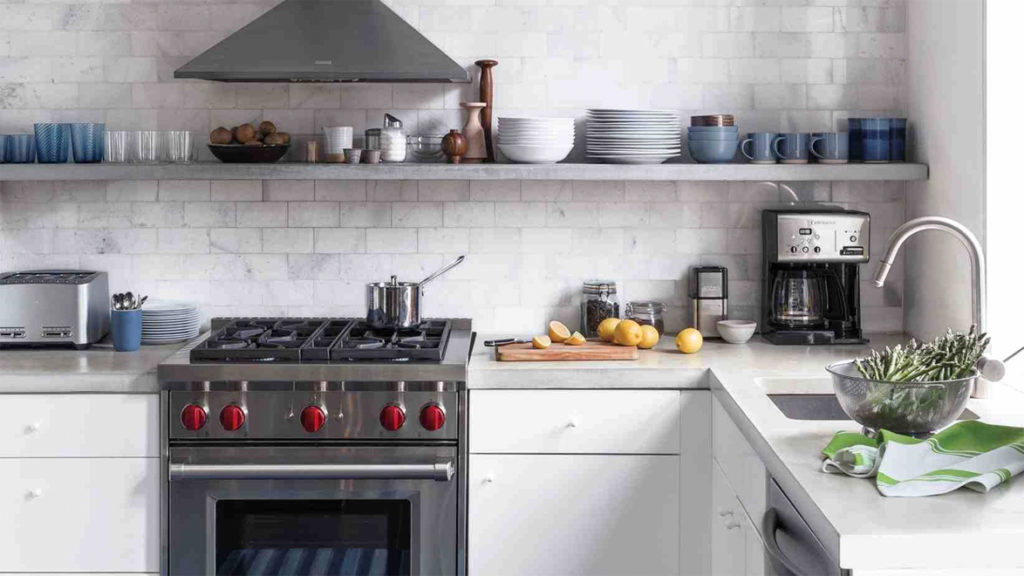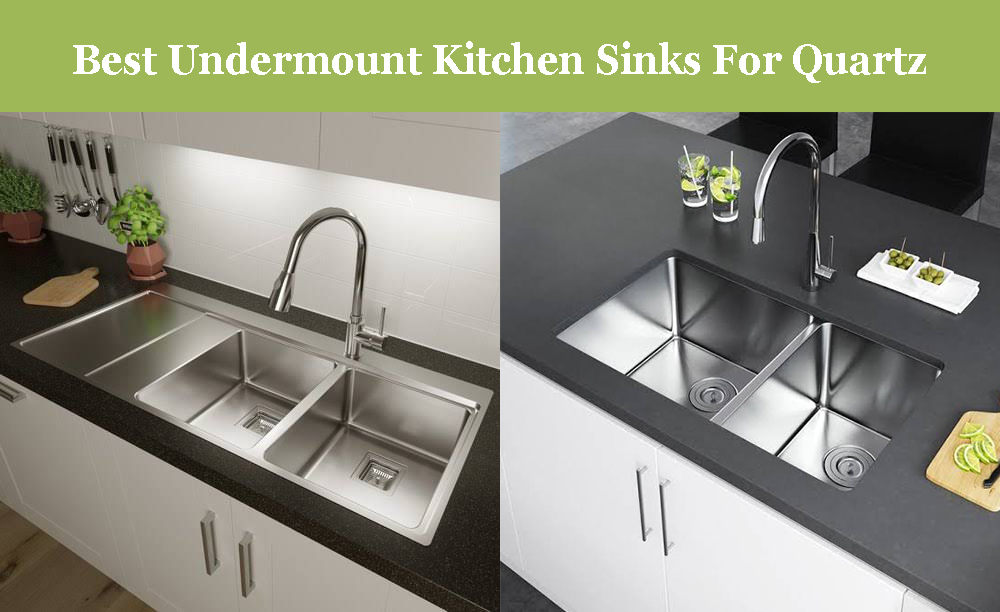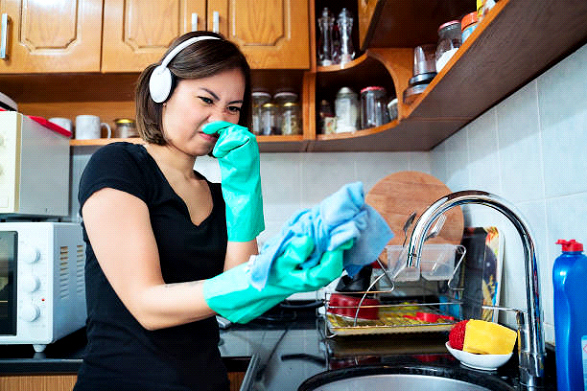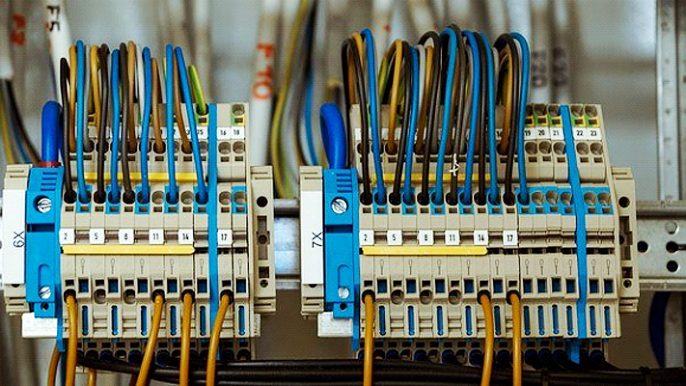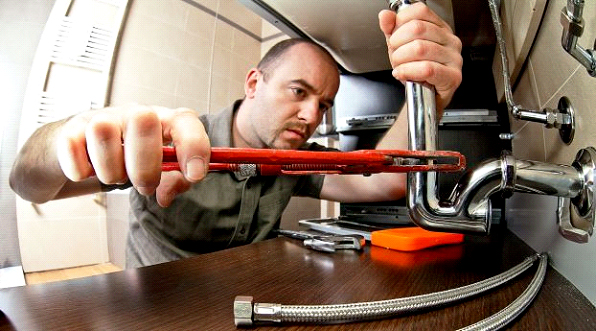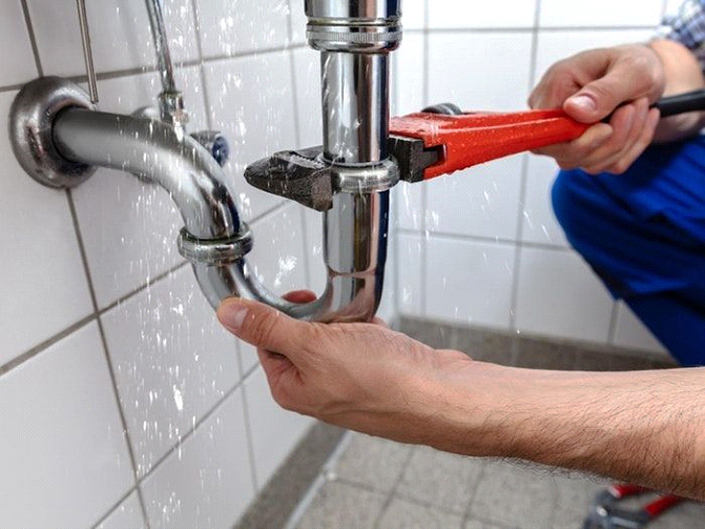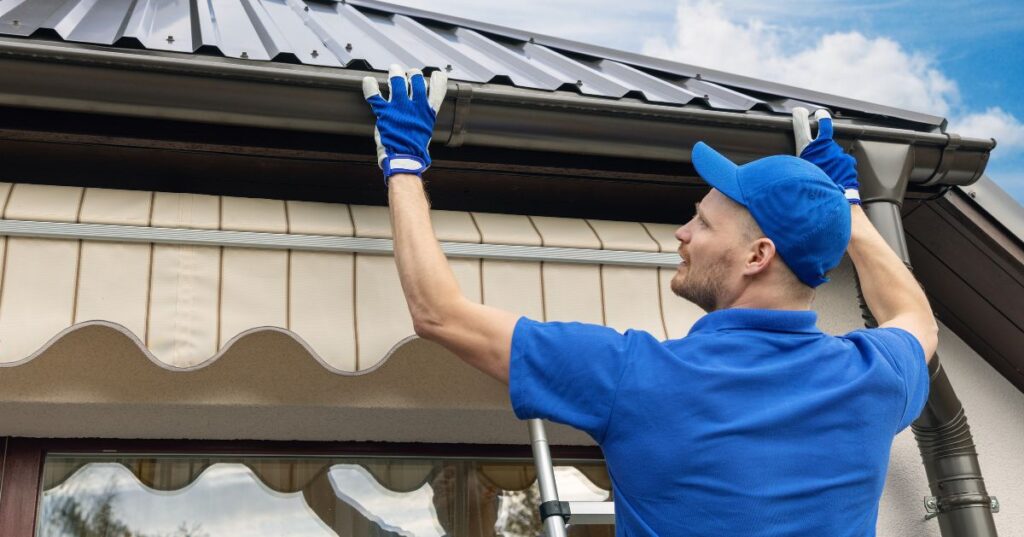Do you often find yourself wondering about the effects of oven cleaner on kitchen countertops? Many dishwashing detergents contain chemicals that can potentially damage countertop materials and sealants, making stains worse and leaving them permanently dull and discolored. While oven cleaners can be effective at removing stubborn stains and grease from your oven, they should not be used as regular kitchen cleaners.
Contents
Why Should You Avoid Using Oven Cleaners on Countertops?
The primary reason to avoid using oven cleaners on countertops lies in the composition of these products. Oven cleaners are specifically formulated to tackle the tough, baked-on grime found in ovens, which is a completely different challenge compared to cleaning a kitchen countertop. They contain potent chemicals that are highly corrosive and toxic, designed to break down stubborn grease and burnt food particles.
When these harsh chemicals come into contact with the materials commonly used for countertops, such as quartz, granite, or wood, they can cause significant damage. This damage can manifest as discoloration, corrosion, or even structural damage, rendering the countertop unusable.
Furthermore, the toxic nature of these chemicals poses a risk to your health. Accidental ingestion or inhalation can lead to serious health issues, and skin contact can cause irritation or burns. Therefore, for the safety of your countertops and your health, it’s best to avoid using oven cleaners on kitchen countertops and instead opt for cleaners specifically designed for this purpose.
So what is the impact of stove cleaner on the kitchen counter? Let’s find out together!
Effects Of The Oven Cleaner on the Kitchen Countertop
1. Corrosion
Corrosion is a significant concern when using oven cleaners on kitchen countertops. Many oven cleaners contain harsh chemicals that are specifically labeled as corrosive. These chemicals are potent enough to cause skin irritation and, more importantly, can severely damage your countertops. The reason these products are safe for use in ovens is due to the materials used in oven construction. Most ovens are made from stainless steel and feature an acrylic enamel coating. This enamel forms a hard shell on top of the metal, providing an additional layer of protection from chemical smoke and spills. However, kitchen countertops, especially those made from materials like quartz, don’t have this protective layer. The polymers that bind the quartz together can react adversely to the heat and harsh chemicals found in oven cleaners, leading to corrosion.
2. Stripes
When you use an oven cleaner on a kitchen countertop, one of the most common issues you may encounter is the formation of stripes. These are typically caused by the strong chemicals in the oven cleaner reacting with the countertop material. The stripes can appear as streaks of discoloration, often in the form of grease stripes, food residues, and other stains.
This is particularly noticeable on lighter-colored countertops where the contrast is high. The stripes can be difficult to remove and may become permanent if not addressed promptly. Moreover, these stripes can disrupt the aesthetic appeal of your kitchen, making it look unkempt and poorly maintained. Therefore, it’s crucial to avoid using oven cleaners on your countertops to prevent the formation of these unsightly stripes.
3. The Fading and Stained Quartz
Quartz countertops, while robust and aesthetically pleasing, are not entirely immune to the effects of harsh cleaning agents like oven cleaners. The surface of these countertops is non-porous, which makes it highly resistant to most stains. However, this does not mean they are completely stain-proof.
When exposed to potent cleaners, especially over a prolonged period, the quartz surface can start to corrode. This corrosion can lead to a gradual fading of the countertop’s vibrant color and shine, diminishing its overall appeal. Furthermore, the corrosive action of the cleaner can cause stubborn stains that mar the surface of the quartz.
These stains are not just superficial marks; they can penetrate deep into the material, making them extremely difficult to remove. Over time, the continuous use of strong cleaners can lead to noticeable discoloration or staining of the quartz countertop, significantly affecting its aesthetic and potentially its structural integrity. Therefore, it’s crucial to use appropriate cleaning methods and products to maintain the beauty and durability of your quartz countertops.
4. Discoloration
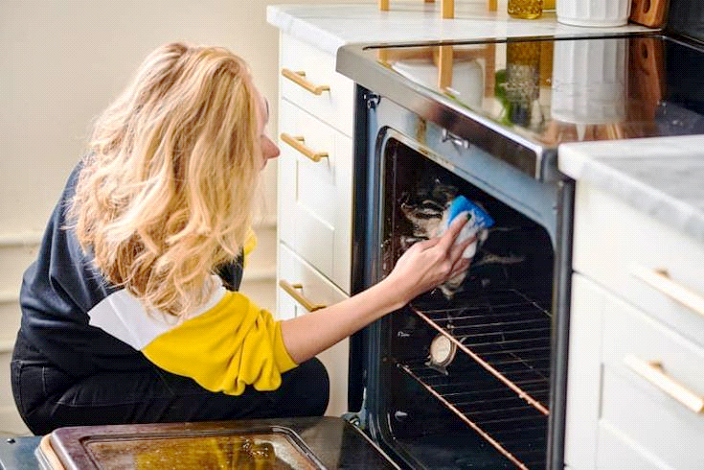
Discoloration is a common consequence of using oven cleaner on kitchen countertops, especially those made of light-colored quartz. The strong chemicals in the cleaner can react with the polymers in the quartz, leading to white marks, spots, and a general dullness that can be very noticeable. This discoloration is not just an aesthetic issue; it can also indicate damage to the countertop’s surface. The discoloration process can be gradual, often not noticeable after the first use of the cleaner. However, with continued use, the surface can become increasingly discolored. Unfortunately, it can be challenging to reverse this discoloration with standard stain removers or rubbing alcohol. In many cases, the effects of a chemical reaction causing discoloration can be permanent, leaving lasting damage on your countertop. Therefore, it’s crucial to avoid using oven cleaners on kitchen countertops to prevent such issues.
How to Clean Up Oven Cleaner Spills on Countertops
- Apply Vinegar: If you accidentally spill or spray an oven cleaner on your kitchen counter, try cleaning it with vinegar. Vinegar is an acid that helps neutralize lye and delay its damage.
- Baking soda and water: You can use baking soda or a paste made of water to clean granite and marble countertops. Baking soda is abrasive, so do not rub it. Instead, tap the affected area, cover it with plastic wrap, and leave it for a few days. (You should always test your homemade paste or cleaner in a small hiding place to see if it affects the finish and color of the stone.)
- Mixing baking soda and dishwashing liquid: Steel countertop lightly dyed, dishwashing liquid, and baking soda paste. Rub the affected area with a soft cloth so that it goes in the direction of the grain.
- Beeswax buffing: For white stains on wood or laminating tables, beeswax buffing is performed. This helps restore shine and leaves a protective film that protects against water and bacteria. Colored abrasive oils also help hide discoloration.
These methods help hide or minimize the appearance of dirt left by the oven cleaner. However, some stains may be too deep to be removed and the discoloration may be permanent. You can refinish your countertop. This restores the original appearance and forms a protective layer that prevents further damage.
The Best Ways to Clean Kitchen Countertops
Maintaining the cleanliness and shine of your kitchen countertops doesn’t have to be a daunting task. It’s all about knowing the right cleaning methods for each type of material. Here are some detailed suggestions for cleaning different types of countertops:
Wood Countertops
Wood countertops add a warm, natural touch to your kitchen, but they require careful cleaning to prevent damage. Use a non-abrasive detergent or a small amount of white vinegar mixed with lukewarm water for everyday cleaning.
For stubborn stains, you can use a mixture of salt and lemon. Sprinkle the stain with salt, then rub it with a cut lemon. The salt acts as a mild abrasive to help lift the stain, and the lemon juice acts as a natural bleach.
To maintain the finish and prevent drying or cracking, regularly oil or wax the wood surface. This strengthens the protective layer and helps prevent warping, cracking, and staining.
Quartz Countertops
Quartz countertops are popular for their durability and resistance to scratches and stains. However, the resin that binds the quartz can be damaged by harsh cleaners. For everyday cleaning, soap and water are usually sufficient.
For tougher stains, you can use a glass or surface cleaner and a non-abrasive sponge. Avoid using bleach or other harsh chemicals, as they can damage the resin over time.
Remember to always rinse thoroughly and dry with a soft cloth or paper towel to prevent water spots.
Steel Countertops
Steel countertops are known for their sleek, modern look and durability. They’re also one of the easiest countertop materials to clean. For everyday cleaning, use soap, water, and a microfiber towel.
For stubborn stains or stuck-on food, you can use a soft cloth and a mild abrasive cleaner. Always scrub in the direction of the grain to avoid scratching the surface.
To restore shine and remove streaks, you can use a stainless steel cleaner or polish. Apply the cleaner to a cloth, then wipe in the direction of the grain. Rinse thoroughly and dry to prevent water spots.
Granite Countertops
Granite countertops are a beautiful addition to any kitchen, but they require special care to maintain their shine. For everyday cleaning, use warm water, a mild or gentle dish soap, and a microfiber cloth. Avoid using harsh or acidic cleaners, which can etch the surface over time.
For deep cleaning or to remove stains, you can use a baking soda and water paste. Apply the paste to the stain, cover with plastic wrap, and let it sit overnight. The baking soda will help to pull the stain out of the granite.
Remember to seal your granite countertops regularly to maintain their shine and prevent staining. The frequency of sealing will depend on the type and quality of the granite, but typically it should be done every one to two years.
Marble Countertops
Marble countertops are elegant and timeless, but they’re also more prone to staining and etching than other materials. For everyday cleaning, use a non-acidic soap or cleaner specifically designed for marble.
For stains, you can use a poultice made from baking soda and water. Apply the poultice to the stain, cover with plastic wrap, and let it sit for 24 hours. The baking soda will help to draw the stain out of the marble.
Like granite, marble countertops should be sealed regularly to protect them from stains and etching. Always use a sealer specifically designed for marble.
Conclusion
These methods help hide or minimize the appearance of dirt left by the oven cleaner. However, some stains may be too deep to be removed and the discoloration may be permanent. You can refinish your countertop. This restores the original appearance and forms a protective layer that prevents further damage.

